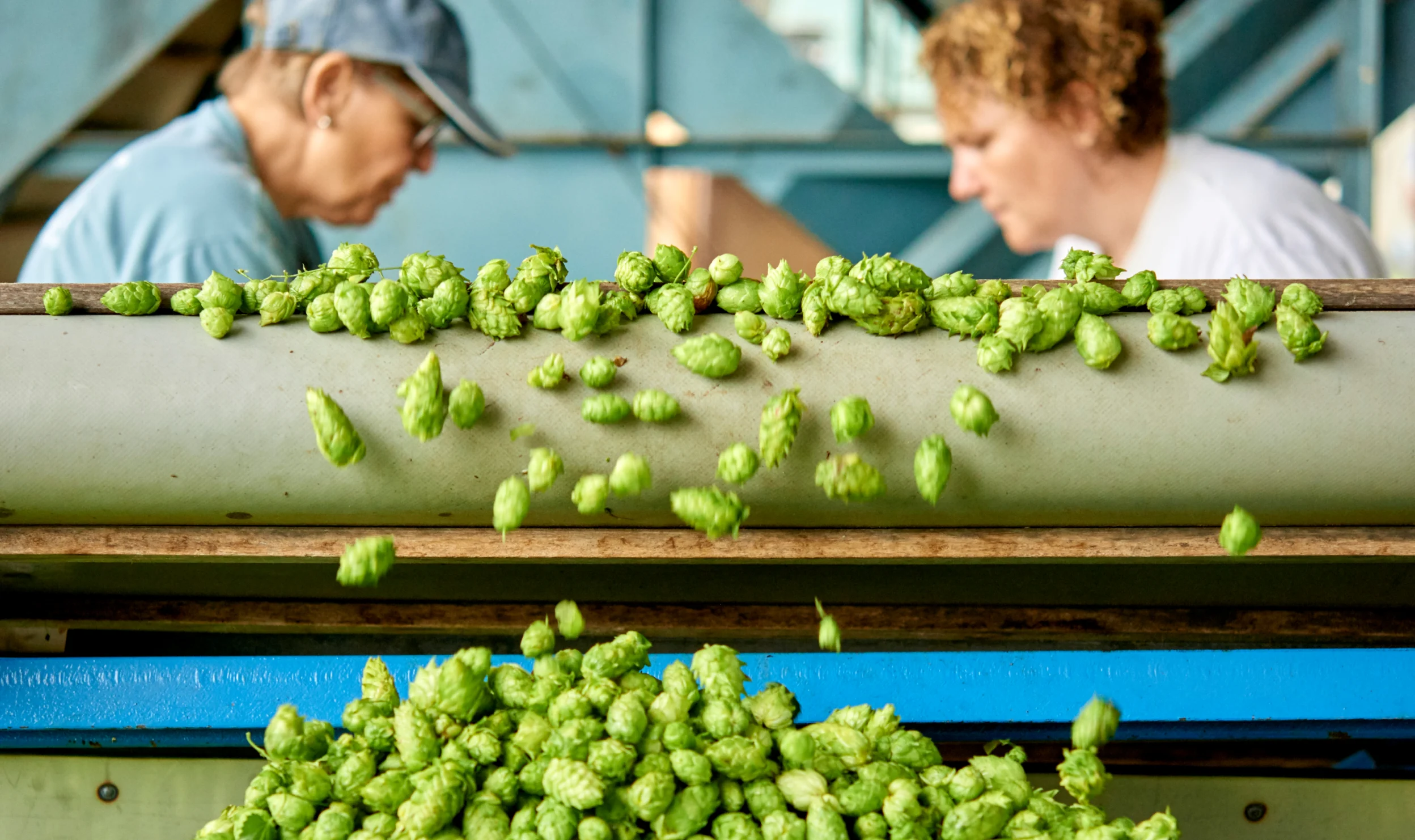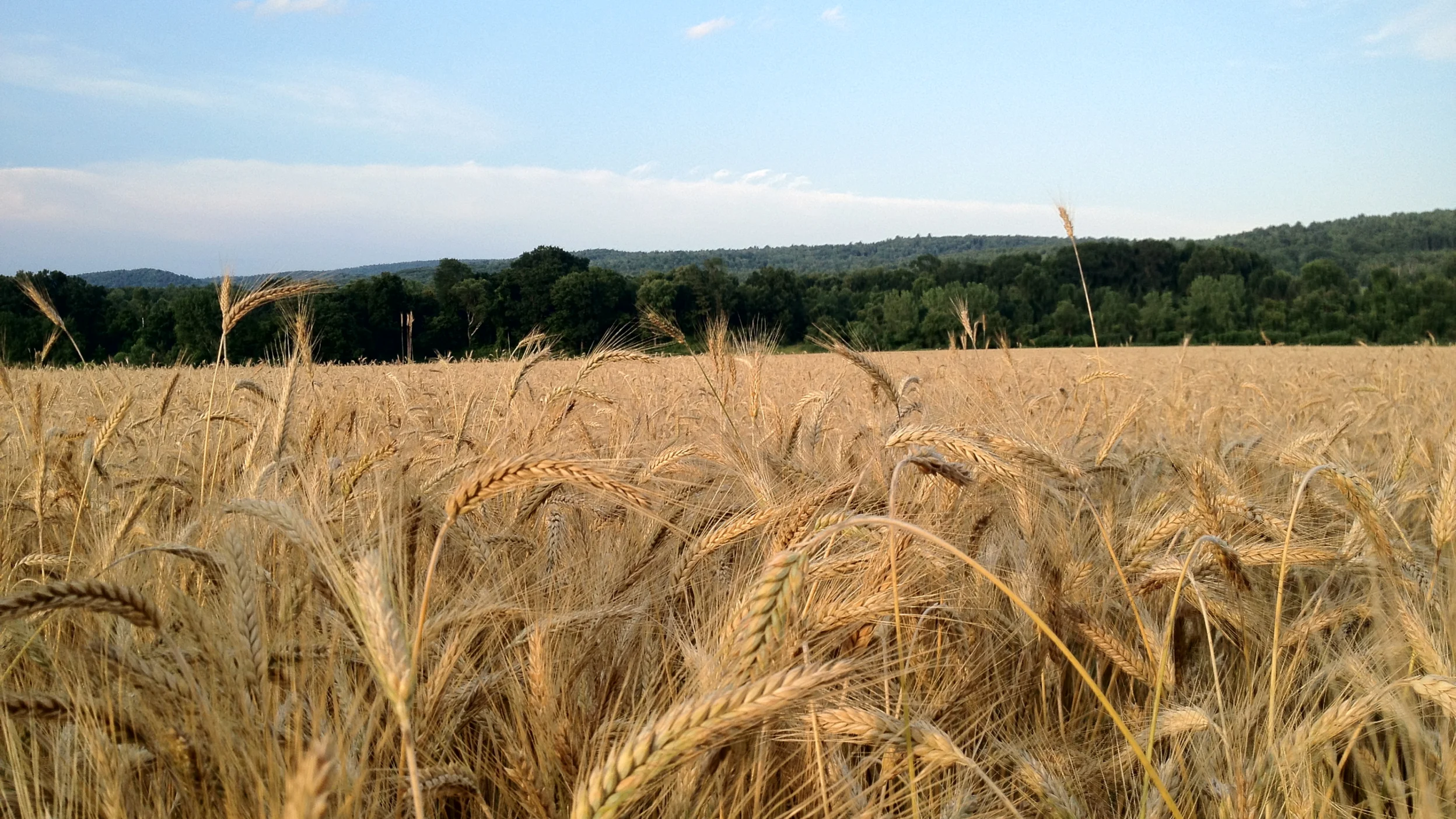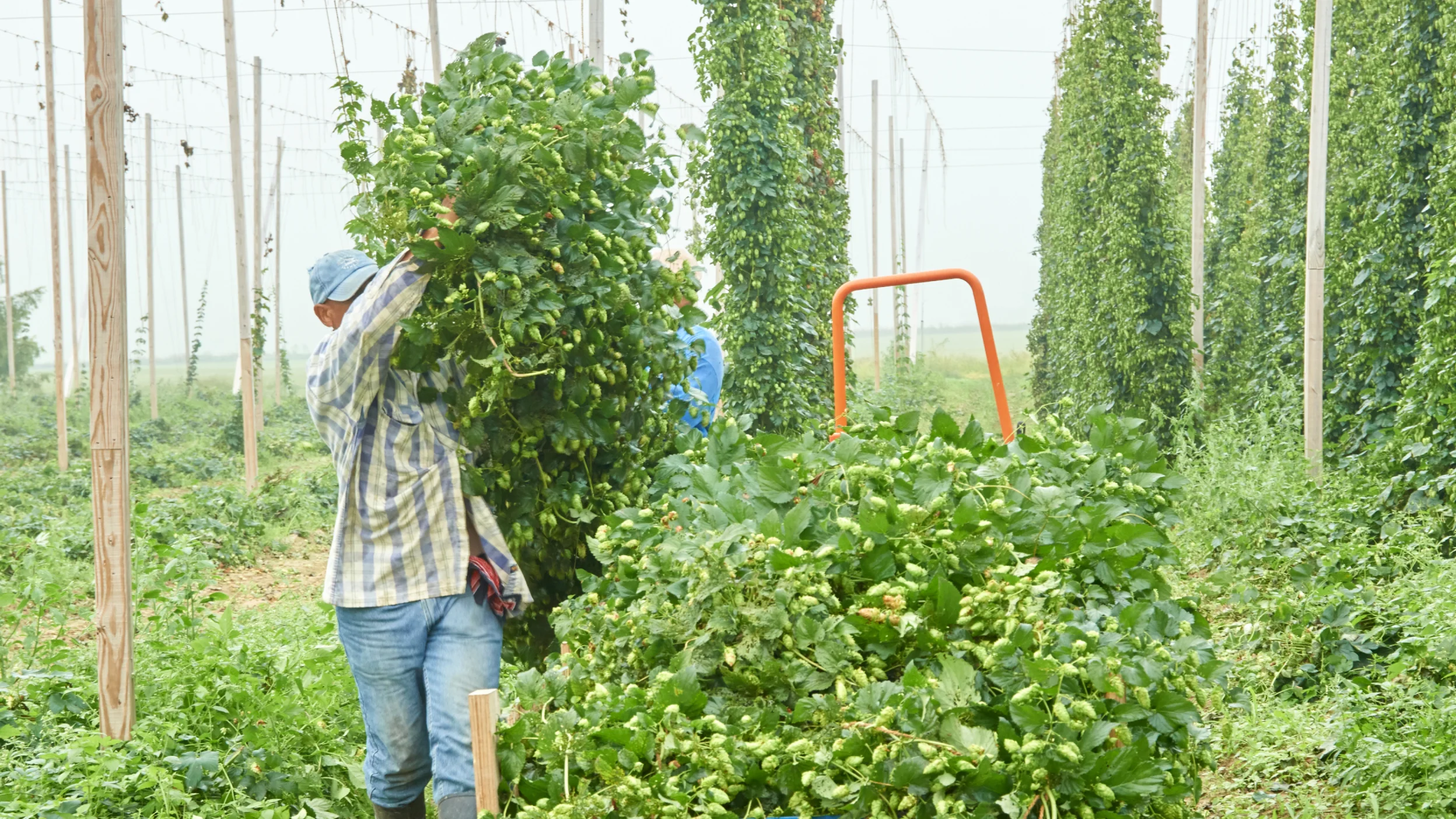Farmers’ stories
Tilla-Bay Farms & Four Star Farms
American Farmland Trust

This piece is the final part of a month-long series about what farming is like today. Follow along on social with @Tillamook and #AllForFarmers. When you purchased Tillamook during the month of September, you helped raise $1.6 million for American Farmland Trust who are helping farmers nationally get ready for the future.
A century of innovation
Tilla-Bay Farms, owned and operated by Bart, Terry, and Kurt Mizee, have farmed the Tillamook Valley since 1918. An early member of the Tillamook County Creamery Association, one might assume a Century Farm like Tilla-Bay would be the last to change its ways. Yet, the family were pioneers of a new era of robot-assisted farming too, one of the first out West to invest heavily in automated milking technology in 2011.
It’s 2am in Tillamook County and a few Holsteins on Tilla-Bay Farms walk themselves to the milking stall to start their day. Thanks to the Mizee family’s trusty robots, milking machines called Lely Astronaut, the cows line up to milk themselves. ‘Smart’ collars, like a bovine ‘Fitbit,’ record key health metrics, milk yield, how much each cow eats—even how many steps she takes.
The Mizees know the only constant in farming life is change. Whether that’s changing seasons, changing conditions within the industry, or changing how a day’s work gets done.

Many, many hats to wear
Three thousand miles away in Northfield, Massachusetts, The L’Etoile family of Four Star Farms, approaches farming from a different angle. Each member of the L’Etoile family pursued higher education before founding Four Star Farms on the site of an old dairy in the Connecticut River Valley.
Although the entire family works together to operate Four Star Farms grass turf and hops cultivation, a lot of their knowledge initially came from the classroom, not crop rows.
“I have a bachelor’s of engineering, and a certificate of turf management. Nate owns or holds finance degrees, my dad owns several engineering degrees, and my mom owns a master’s and most of the way to a PhD. Liz, who does our sales and marketing, has an undergrad in psychology and a master’s in social work, ”Jacob L’Etoile says.
“That's seven undergrads and two masters split between four farmers.” His brother Nathan L’Etoile responds.
With four family members working on the farm, hence the name Four Star Farms, each member of the L’Etoile family pitches in to round out the team’s daily tasks, including marketing and reaching new audiences through Four Star Farms’ social media accounts.
“How many hats do you wear in a single day?” Nathan asks Jacob.
“I’m a manager, an agronomist, a field worker, an equipment operator, a morale booster, a morale shrinker,” Jacob responds with a laugh.
Nathan mentions the family builds and maintains a lot of its own equipment and monitoring technology. “A lot of mechanical engineering and a lot of technology goes into that equipment construction,” Nathan says.

A costly gap to bridge
The Mizee and the L’Etoile families are shining examples of farmers putting their savvy to work every day. Through grit, education, and plenty of help from technology, these tight-knit families push forward, adapting to an industry in the throes of challenges and change.
Technological advances in farming have improved animal welfare, crop yield, reduced harvest time—they even helped the Mizee family celebrate their first uninterrupted Thanksgiving together. But these technological investments are costly, and require intensive training for farmers. Even cows have to adjust to the unsupervised nature of the automatic milking process when machines like the Lely are brought online.
The investment of future-proofing a farm introduces more barriers for a way of life already facing strong financial headwinds. According to data from American Farmland Trust and the U.S. Census*, an estimated 580 farmers filed for Chapter 12 bankruptcy protection in the 12-month period ending June 30th, 2020. Up 8% from a year earlier. U.S. farm debt has grown to more than $425 billion—the largest since the farm crisis in the 1980s. Stark figures, considering the price of upgrading a single piece of farm machinery, like an industrial tractor, can cost upwards of $200,000.
Tillamook and American Farmland Trust understand these challenges facing the farming community. With a commitment to providing grants to help farmers preserve land on at-risk farms, expand production, and adopt new farming practices—Tillamook and AFT are deeply committed to addressing these challenges facing the farming industry.
*Wall Street Journal, August 6th, 2020 citing federal data from U.S. Courts

All for farmers, farmers for all
What can the everyday consumer do to help support their local farmer? Nathan L’Etoile keeps it simple,
“Buy from them. Get to know your food. Get to know who’s selling it, who’s growing it, and buy it.” he says.“The closer you can get to the people who are growing and raising your food, the better it will be. The healthier it’ll be.”
Recalling some of the fantastic local beers his hops have produced, Jacob responds
“It’s really something special to see a product that somebody else made with something you grew. It’s special, and it keeps me coming back day after day when things get hard.”
Over the past four articles, it’s been our honor to introduce you to a smart, tireless group of farmers from every corner of our great nation. All dedicated to the land, all adapting to rapid change.
Now this community needs our help more than ever. To learn more about the efforts to preserve farms and the farming way of life, visit American Farmland Trust. More importantly, visit your local farmer’s market, meet your local farming community, and support their efforts. Even in the middle of a metropolis, you may be closer to the land than you expected. That’s a step in the right direction—and why we’re #ALLFORFARMERS.